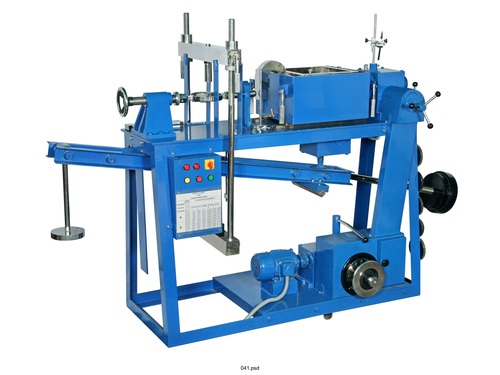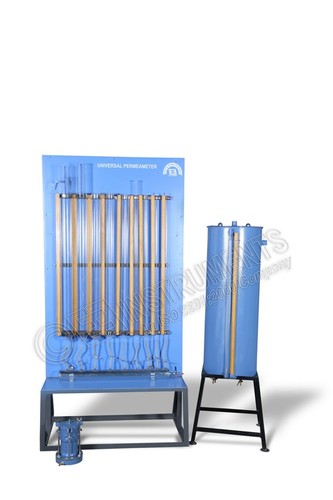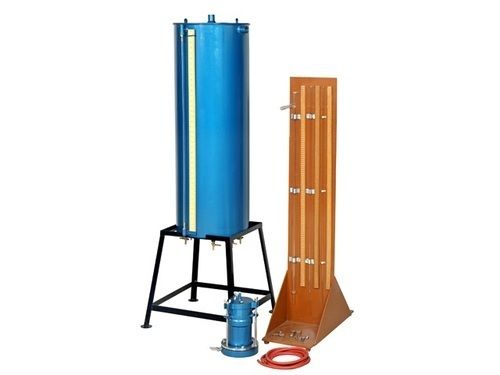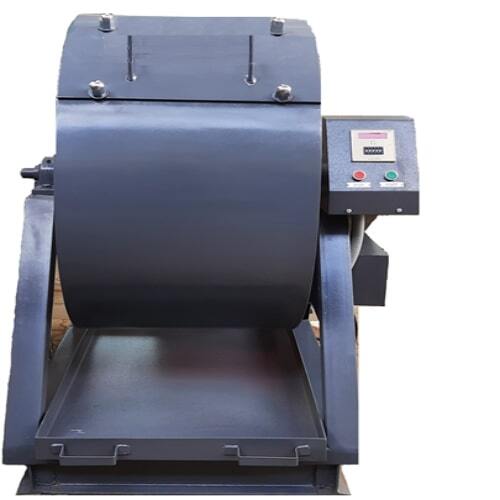Dynamic Cone Penetration Test Apparatus (DCPT) for Pavement
Dynamic Cone Penetration Test Apparatus (DCPT) for Pavement Specification
- Product Type
- Dynamic Cone Penetration Test Apparatus for Pavement
- Dimension (L*W*H)
- 1290 X 210 X 225 (L X W X D) mm Millimeter (mm)
- Weight
- 29 Kilograms (kg)
- Application
- Instrument designed for the rapid in-situ measurement of the structural properties of existing road pavements constructed with unbound material.
- Usage
- Soil Testing Equipment
- Features
- Accurate results, Robust construction, Efficient working
- Automation Grade
- Semi Automatic
- Machine Weight
- 29 Kilograms (kg)
- Control Mode
- Electric
Dynamic Cone Penetration Test Apparatus (DCPT) for Pavement Trade Information
- Minimum Order Quantity
- 1 Piece
- Supply Ability
- 100 Pieces Per Month
- Delivery Time
- 4 Week
- Sample Policy
- Contact us for information regarding our sample policy
- Packaging Details
- Wooden Box / Corrugated Box
- Certifications
- ISO 9001 : 2015
About Dynamic Cone Penetration Test Apparatus (DCPT) for Pavement
Applications:
The Dynamic Cone Penetrometer i.e. DCP is an instrument designed for the rapid in-situ measurement of the structural properties of existing road pavements constructed with unbound material.
Features:
- Well proven, robust design
- Portable and easy to operate
- Tests can be carried out in minutes
- Results correlate well with conventional CBR readings
- Detects layer boundaries and thicknesses
- Ideal in locations where access is difficult such as coal holes
Further details availableon our website.
The Price mentioned here are subject to change as per the capacity,specifications and application of the user.
Efficient Pavement Assessment
Our DCPT Apparatus streamlines pavement condition evaluation by enabling quick, on-site measurements of existing roads. Its rugged build and manageable size allow easy transport and operation even in remote locations. Field teams benefit from reduced downtime and increased accuracy in data collection.
Versatile Soil Testing Applications
This apparatus adapts to various site conditions due to its versatile design. Whether assessing highways, rural roads, or construction sites, it provides essential data on load-bearing properties, supporting engineers in designing, maintaining, and upgrading roads built on unbound material foundations.
FAQs of DYNAMIC CONE PENETRATION TEST APPARATUS (DCPT) FOR PAVEMENT:
Q: How is the DCPT apparatus used in pavement evaluation?
A: The DCPT apparatus is driven into pavement layers constructed with unbound material to assess their structural strength. It measures resistance against penetration, offering insights into the layers quality and suitability for load-bearing purposes.Q: What benefits does the DCPT provide for road construction projects?
A: The DCPT delivers rapid, in-situ results, saving time compared to laboratory testing. Its portability permits frequent on-site assessments, leading to better decision-making, quality assurance, and successful pavement rehabilitation or upgrades.Q: When should you deploy the DCPT apparatus during a construction project?
A: The DCPT is best utilized during initial site investigations, quality control stages, and post-construction evaluations. It helps confirm that unbound pavement materials meet structural requirements before advancing to subsequent construction phases.Q: Where can the DCPT apparatus be employed most effectively?
A: The DCPT apparatus can be used on a wide range of road pavements formed with unbound materials, including highways, local roads, airfields, construction sites, and rehabilitation projects, particularly where in-situ testing is essential.Q: What is the process for using the DCPT apparatus?
A: The apparatus is set up over the test location, after which the cone is carefully driven into the pavement using a standard falling weight. The number of blows per penetration depth is recorded, reflecting the structural integrity of the underlying layers.Q: What makes this DCPT model suitable for fieldwork?
A: With dimensions of 1290 x 210 x 225 mm and a 29 kg weight, this model is portable and easy to handle. Its rugged construction enables repeated use in challenging field conditions while ensuring precise and dependable measurements.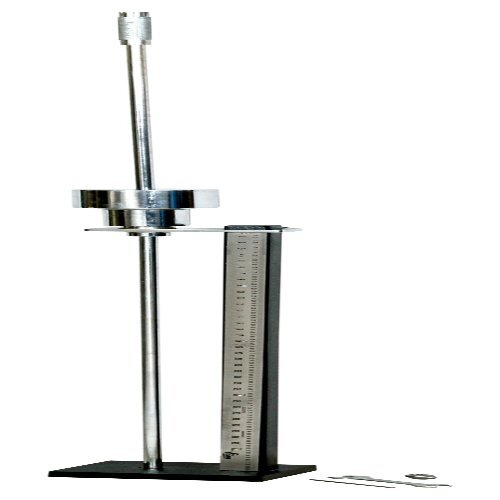


Price:
- 50
- 100
- 200
- 250
- 500
- 1000+
More Products in Soil Testing Equipments Category
Direct Shear Apparatus
Price 1.00 INR / Piece
Minimum Order Quantity : 1 , , Piece
Features : Rigid frame, corrosion protected, smooth movement
Automation Grade : Manual
Machine Weight : Approx. 75 kg
Display Type : Analog (dial gauge, not included as standard)
Universal Or Combination Permeameter
Price 1.00 INR / Piece
Minimum Order Quantity : 1 Piece
Features : Rugged construction, adaptable for falling and constant head tests
Automation Grade : Semiautomatic
Machine Weight : Approx. 30 kg
Display Type : Analog/Digital
Permeability Apparatus For Constant And Variable Head Test
Price 30000 INR / Piece
Minimum Order Quantity : 1 Piece
Features : Interchangeable molds for both test types, durable MS construction, transparent measuring tube
Automation Grade : Manual
Machine Weight : Approx. 40 kg
Display Type : Analog scale
TUMBLER DRUM TEST APPARATUS - WITH PRESETTABLE DIGITAL COUNTER
Price 165000 INR / Piece
Minimum Order Quantity : 1 Piece
Features : Automatic Digital Counter, Collisionresistant drum, Rugged Construction
Automation Grade : Automatic
Machine Weight : 600 Kilograms (kg)
Display Type : Digital LED Display
 |
EIE INSTRUMENTS PVT. LTD.
All Rights Reserved.(Terms of Use) Developed and Managed by Infocom Network Private Limited. |

 Send Inquiry
Send Inquiry
